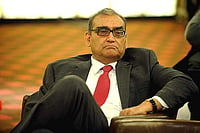Saudi Arabia is a classic example of a majoritarian state, an absolute monarchy founded on the tenets of Islam. The king is head of state and government. Decisions are taken in consultation with princes on the basis basis of the sharia. The government is dominated by the royal family of Al Saud. Foreign policy, defence and international affairs are the preserve of the state, but justice, education and family matters are handled by the religious establishment. Al ash-Sheikh is the leading religious family, descended from the founder of the 18th century Wahabi form of Islam. And Saudi Arabia is built on the Al Saud’s pact with the religious establishment some 300 years ago.
Everything, one would imagine, is well laid out and understood on the basis of conservative Wahabi values. The state is, of course, immensely rich on the strength of its great oil wealth and it was inevitable that some of this wealth was diverted to spreading the message of Wahabi Islam across the world, including on the Indian subcontinent. Elaborate mosques have been built with Saudi largesse, with Saudi preachers following the money trail to preach the Wahabi tenets. Yet the country lives in a turbulent region and safeguards its interests through an alliance with the US, even as it feels free to propagate Wahabism around the world.
In practising its brand of majoritarianism at home, it has not always had smooth sailing. To begin with, there is the minority Shia population (about 12 per cent), and among the Sunnis itself, extremist factions have made their voices heard. The most dramatic was the 2003 attack in Riyadh by Al Qaeda-linked bombers who killed 35 people.
There have been other disquieting trends too in recent times. Osama bin Laden was, of course, a Saudi and 15 of the 19 9/11 hijackers were Saudis. We have it on testimony by ex-CIA director James Woolsey that Saudi Wahabism is “the soil in which Al Qaeda and its sister terrorist organisations are flourishing”.
Change comes slowly in Saudi Arabia. But there have been some ripples and gestures of strictly limited democratisation have been made in forming a consultative assembly, projecting the women’s vote in local elections, forming a national dialogue forum, making a woman ministerial appointment etc. For many of the Saudi elite outside the charmed, extensive princes’ circle, these changes are cosmetic.
Among the many dilemmas of practising majoritarianism in a conservative society are how far to go in loosening social mores and the dangers of eroding a carefully built social structure. The ban on women driving cars is an example of the limits of Saudi tolerance. Even as the state considers it its duty to spread the Wahabi gospel, the extremist trends in Islam present new problems. If Saudi largesse is diverted to extremist ends, where does the state draw the line? Besides, as the gale-force winds of the Arab Spring shook the region, the Saudi reaction was to throw tens of billions of dollars into building middle-class housing. From Riyadh’s point of view, the phenomenon was a very unwelcome event; mercifully, the traditional Arab ruling elite “rescued” their countries.
Saudi difficulties in practising their form of majoritarianism have grown. For one thing, Iran is asserting its regional role as the Shia power amidst increasing Shia-Sunni friction. Besides, US efforts to seek reconciliation with Teheran on its nuclear programme have riled Riyadh, apart from its grouse that by invading Iraq, Washington turned a Sunni-ruled state into a Shia hegemony.
Saudis have been generously funding Sunnis in the Syrian civil strife, although they have moderated assistance to the extreme factions, with the rise of isis and its demand for an Islamic Caliphate. There are few indications of a rethink in the practice of majoritarianism at home because the entire philosophy of the state is geared to the primary task of promoting the Wahabi Sunni creed. The dilemma of majoritarianism in a changing world remains to be resolved with recent climactic events in the region making the monarchy more cautious.
(The writer is ex-editor, Khaleej Times, Indian Express and The Statesman)

























